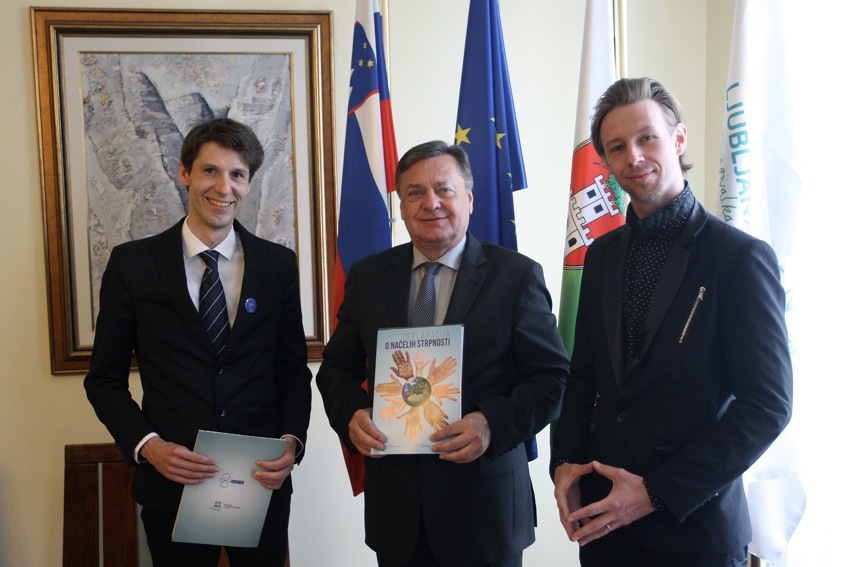UNESCO Declaration on Tolerance
On 19 May 2016, representatives of the Eksena Educational Centre presented the Mayor Zoran Janković with a copy of the UNESCO Declaration on Tolerance, translated into the Slovene language.
The author of the translation of the Declaration into the Slovene language is Dr Nejc Jelen from the Eksena Educational Centre.
The translation of the Declaration of Principles on Tolerance is their first project at national level and their concrete contribution in the times when humanity and Humans, with a capital letter, are needed.
Within the framework of the humanitarian and socially responsible non-profit project »We are FOR TOLERANCE!« in co-operation with the Eksena Association, the Eksena Educational Centre has on its own initiative and with its own funds made the first Slovene translation of the Declaration of Principles on Tolerance which was solemnly adopted in 1995 by the United Nations Educational, Scientific and Cultural Organisation (UNESCO), which is part of the United Nations Organisation.
This important, timeless and noble international charter adopted by the UNESCO General Conference at its 28th session in Paris underscores the importance of tolerance, as it states in its preamble: »Bearing in mind that the United Nations Charter states "We, the peoples of the United Nations determined to save succeeding generations from the scourge of war, ... to reaffirm faith in fundamental human rights, in the dignity and worth of the human person... and for these ends to practise tolerance and live together in peace with one another as good neighbours."«
In addition, the Declaration maintains that tolerance is necessary for peaceful development of individuals and the society. Therefore the first article of the Declaration states: »Tolerance, the virtue that makes peace possible, contributes to the replacement of the culture of war by a culture of peace.«
The Slovene translation of the Declaration of Principles on Tolerance is published on the website of the Eksena Educational Centre and is available to the public free-of-charge, namely, the authors are of the opinion that this humanitarian charter is of universal significance and as such has to be accessible to everyone.


